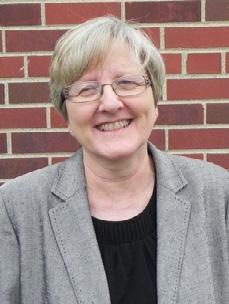









The UNO PhD in Public Administration creates a supportive, collaborative, and rigorous environment for students to develop their intellectual identities and a comprehensive understanding of the field and a range of research traditions.

Our students and alumni will make significant contributions to theory, policy, research, and practice towards enhancing a democratic society.
Intellectual openness, collaboration, diversity, and excellence.
Welcome! Our PhD program is unique in creating a supportive, collaborative, and rigorous environment for students to develop their intellectual identities and a comprehensive understanding of the field and a range of research traditions. The UNO School of Public Administration is ranked 23rd in the country in Public Affairs in U.S. News and World Report and higher in several specialization areas.
Our graduates typically complete the PhD program having at least one or two publications and substantial teaching experience. We have a strong record of placing our students in faculty positions as well as in government and nonprofit positions focused on applied research, evaluation, and consulting.

Throughout this annual report you can see the significant contributions and milestones achieved by our stellar students. We hope you will consider joining us in Omaha!
Dr. Angela Eikenberry


PhD Doctoral Program Chair, term ending June 2022

Drs. Carol Ebdon and Yu-Che Chen

PhD Doctoral Program Co-Chairs, term starting July 2022
University of Nebraska at Omaha cebdon@unomaha.edu and ychen@unomaha.edu
Dr. Angela Eikenberry Dr. Carol Ebdon Dr. Yu-Che Chen OUR PhD CHAIRS School of Public Administration University of Nebraska at Omaha


The Public Administration PhD program emphasizes both the empirical and normative dimensions of the field. It recognizes multiple ways of knowing by teaching interpretive, critical and post-traditional approaches in addition to more traditional positivist knowledge development. Students learn to translate knowledge to solve organizational challenges, community problems, and societal needs in the U.S. and across the globe. As a result of the commitment of our faculty, our PhD graduates are well prepared for the job market and well trained to become independent academics.
Intellectual identity, academic rigor and democratic purpose are central to the program’s success. Students experience a culture of openness, coupled with opportunities to conduct research with faculty, funding to attend academic conferences, and chances to teach undergraduate courses online and in person.
Typically, by their third year, students are assigned to teach at the undergraduate level. The courses they teach support the Emergency Management undergraduate program, the Bachelor of Multidisciplinary Studies concentrations in public administration and nonprofit management, as well as the campus-wide nonprofit management minor.
The PA PhD program is now one of seven at the University of Nebraska at Omaha and has been extremely successful in fulfilling the initial goal of the program in enhancing the national reputation of the School and University.

Program: 1995-2022

PHD PROGRAM HISTORY: In May of 1994, the Board of Regents of the University of Nebraska approved a PhD program for the School of Public Administration with classes to begin in the Fall semester of 1995. Since that time, we have been providing graduates with the ability to achieve scholarly distinction in higher education or leadership positions in public and nonprofit management.
80% of graduates are employed in academic positions in the U.S. and elsewhere;
the remaining are in upper-level administrative positions in public, nonprofit, and for-profit organizations.
Our graduates have been placed at Virginia Tech, Rutgers, SUNY Albany and a host of other universities in the U.S. and around the world. The remaining are in upper-level administrative positions in public, nonprofit, and for-profit organizations such as working in the U.S. Federal Aviation Administration; the




“We are seeing the need and challenge with students and organizations to engage students across sectors: public, private and nonprofit.”
Dr. Craig Maher UNO SPA Director
T
Kenya Love
Member of the Planning Committee, 2022 Social Equity Leadership Conference
Reviewer, Administrative Theory and Praxis
Member, PAT-Net 2022 annual conference organizing committee
Member, ASPA Nebraska Council
Keristiena Dodge
President, UNO Staff Advisory Council
Yuriko Doku
Member, Board of Latino Center of the Midlands
Member, Omaha Women’s Fund Circle Class 10
Member, UNO Staff Advisory Council

Member, UNO ArteLatinX Committee
Treasurer, ASPA’s Section for Science & Technology in Government
Dr. Josephine Hazelton-Boyle
Board member, ASPA’s Section for Transportation Policy and Administration
Reviewer, Transportation Research Board and Public Works Management & Policy
Secretary, ASPA Section on Transportation & Policy Administration
Chair, Aircraft Dispatch Committee for the UAA
Member, CPACS Diversity, Equity, and Inclusion (DEI) committee
Adviser, Beta Beta Chapter of Alpha Phi Alpha Fraternity, Inc
Adviser, UNO Organization of Black Aerospace Professionals (OBAP)
Dr. Nick Juliano
Co-chair, Juvenile Service Committee of the Nebraska Children’s Committee and Youth Impact! of Douglas County.
Member, Dual Status Youth Practice Network of the Robert F. Kennedy National Resource Center for Juvenile Justice Reform.
Board member, Nebraska Juvenile Justice Association and Boys Town South Omaha Advisory Board
Wei-Jie Liao
Volunteer, World Vision and Long-Hua Elementary School
Vice President, Black Family Health & Wellness Association
Board member, North Omaha Area Health Board Member, POC Collaborative
Dr. Emily MacNabb
Board member, UNO Schwalb Center for Israeli and Jewish Studies
Shawn Maxwell
Member-at-Large, ARNOVA Early Scholars Section
Advisory Board Member, North Omaha Area Health (NOAH) Clinic
Co-originator, I Come as One Podcast
Volunteer, POC Collaborative
Carol RedWing
Member, UNO Native American Studies (NAS) Executive Council
Reyna Reyes-Nunez
Volunteer, Douglas County Health Department
students provide significant servicein the community






The SPA PhD program admitted its first class in 1995 and now has 63 graduates, mostly in academic positions, as well as working in upper-level administrative positions in public, nonprofit, and for-profit organizations.










Bit An “An Exploratory Case Study of the Adoption Process of the New Pilot Policy: The Case of Boston”
“Housing, Trades, and Childcare: A Narrative Study of Economic Development in Rural Nebraska”
Dr. Gabrielle L’Esperance “African Nongovernmental Organizations and Their Relationships with Globally Northern Funders: A Study of the Expression of Everyday Creative Agency”
“Social Vulnerability and Disaster Response: The Case of a Potential Flood Event in a Metropolitan Area”Dr. Josh Shirk
“Traditional Public Administration, New Public Management, and the Specter of a PostWork Future”Dr. Nick Juliano
“Using System of Care Principles to Improve Juvenile Justice Policy and Practice for Youth and Families”Dr. Morgan Vogel
“Advancing a Discourse of Vocation for Public Administration: Understanding the Experiences of City Managers Through Narrative Inquiry”
Dr. Yunseung Kim “Fiscal Impact and Allocation of Water and Wastewater Funding Sources”
Dr. Del Bharath
“Does Policy Matter? An Examination of the Impact of Redevelopment Policy on Gentrification Levels in Midsized American Cities”
Dr. Josephine Hazelton-Boyle
“The Pursuit of Gender Equity in Public Transit Administration”
We had a record number of ten graduates this past year, who are now employed in university research and teaching or government or nonprofit administrative positions.
Theodore Johnson is a Ph.D. student in Public Administration, and an Aviation Institute Instructor.
While only in Nebraska going on three years, Theodore has been noticed for already creating lasting change to broaden the horizons of racial and gender minorities within the UNO and Omaha communities pertaining to aviation/aerospace and other STEM fields.

In 2022, he was recognized by The Greater Omaha Chamber Young Professionals as one of four 2022 Change Makers for his work in the aviation industry. Theodore also was recognized with the 2022 Student Paper Award by the American Society of Public Administration, Section on Transportation Policy & Administration.
His manuscript was titled “Quieted Voices: A Phenomenological Analysis of the experiences of Black/ African-American collegiate aviation students.”
Area of expertise: Theodore specializes in the social equity nexus of aviation and higher education, working towards lasting change that focalizes racial equity within higher education and the aviation industry.
“It is my charge as a Black male educator, scholar, and aviation professional to utilize this power to provide a platform to voice the experiences that have been historically ignored and to advance racial and educational equity for minorities.”
Praise for UNO: “My time as a student at UNO and faculty member within the AI/CPACS has been nothing short of extraordinary. The academic and non-academic support I received thus far has been unparalleled, which has empowered me to excel personally, professionally, and academically. Consequently, I have grown as an educator, scholar, and aviation professional.
“If it were not for the supportive, open-minded, and equity-driven faculty within UNO’s SPA, I would not have had the unwavering confidence to engage in such bold scholarship, the knowledge to navigate the project which led to my national award, or the academic freedom to do so in the academy.“

Theodore earned his B.S. in Aviation Management and Master of Public Administration from Eastern Michigan, and has been a Private Pilot w/Instrument Rating; Aircraft Dispatcher. He expects to complete his Ph.D. in Public Administration in 2023.

Thoughts from Josey on her UNO experience: Spring, 2022

Top Experiences at UNO?: My GRACA grant from UNO to conduct research in Toronto, Ontario & the opportunity to teach several undergraduate courses. I loved working with UNO students.
Why Public Administration? I see public administration as key to solving some of society’s most complex challenges. I study issues of social equity in public administration, primarily with a focus on transportation agencies.
Future Plans: I am starting as an Assistant Professor of Public Administration and Policy at the University of Montana in the summer of 2022.

Austin, E. K., & Rouse, Ryan (2021). Faciality and the assembly of organizational subjectivity: Considering the possibilities of emancipation in management theory. Tamara Journal for Critical Organization Inquiry.
Blanco, Felipe (2021). Race matters at the DMV? Public values, administrative racism and whiteness in local bureaucratic settings. Administrative Theory & Praxis. Bharath, Del & Kahl, S.C. (2021). Founder or flounder: When board and founder relationship impact nonprofit performance. Journal of Public Affairs Education.
Ding, Minshuai (2021). Mobile apps for flood emergency management in China: Functionality, usefulness, and coproduction. China Media Research.
Doku, Yuriko, Heckler, N., Jay, F., Larson, S., Niverson, S., & Starr, A. (2021). Midlands voices: Critical race theory deepened racial understanding for our UNO class. Omaha World Herald.
Eikenberry, A.M., & Song, Xiaowei (2022). Collaborative philanthropy and doing practically relevant, critical research. Researching Voluntary Action: Innovations and Challenges, J. Dean & E. Hogg (eds), Policy Press.
Gehringer, Joel (In press). The postmodern public sphere: ICT, misinformation, and simulated civil society. In R.M. Mirabella, T.M. Coule, & A.M. Eikenberry (eds). The Handbook of Critical Perspectives on Nonprofit Organizing and Voluntary Action: Concepts, Applications and Future Directions. Elgar Publishing.
Hazelton-Boyle, Josephine (In press). Transit stigma: Transit administrators’ views of the role of policy elites in perpetuating stigma. Public Works Management & Policy.
Heckler, N., & Rouse, Ryan (In press). Reckoning with theoretical research: A heuristic for gauging and writing public administration theory. Administrative Theory & Praxis.
Jamieson, T., Caldwell, Dakota, Gomez-Aguinaga, B., & Doña-Reveco, C. (2021). Race, ethnicity, nativity and perceptions of health risk during the COVID-19 pandemic in the US. International Journal of Environmental Research and Public Health.
Johnson, Theodore (In press). Book review: From equity talk to equity walk: Expanding practitioner knowledge for racial justice in higher education. Journal of Public Management & Social Policy. Jung, Seoeun, Eikenberry, A., Webb Farley, K., & Brainard, L. (In press). How do foundations support (anti-)racism? A critical race theory perspective on philanthropy and racial equity. Journal of Philanthropy and Marketing.
Liao, Wei-Jie, Kuo, N., & Chuang, S. (2021). Taiwan’s budgetary responses to COVID-19: The use of special budgets. Journal of Public Budgeting, Accounting & Financial Management. Lutte, R. K., Johnson, Theodore, Liao, Wei-Jie. (2022) In plain sight: An Analysis of factors that influence the recruitment and retention of Black aviation professionals. International Journal of Aviation Research.
Love, Kenya (2021). Omaha based financial literacy programs: An initial environmental scan. POC Collaborative. MacNabb, Emily, & Fletcher, B.J. (2021). Food insecurity and economic crisis: The case of Omaha, Nebraska during the COVID-19 shutdowns. In A.B. Hoflund; J.C. Jones, & M.C. Pautz (eds.). Administering and Managing the US Food System: Revisiting Food Policy and Politics. Rowman & Littlefield.
Reyes-Nunez, Reyna L. (In press). Qualitative methods in international relations. In R.J. Huddleston, T. Jamieson, & P. James (eds.). Handbook of Research Methods in International Relations. Edward Elgar Publishing.
Reyes-Nunez, Reyna L. (2021). Book review: Exploring the World of Social Policy: An International Approach, by Michael Hill and Zoe Irving. International Review of Public Administration.
Reyna L. Reyes-Nunez, Blanco, Felipe, Benenson, J., Cortes Rivera, J. J., Gomez-Aguinaga, B., Heckler, N., Jamieson, T., & Mwarumba, N., (In press). Building inclusion, equity, and diversity into student coauthorship. PS: Political Science and Politics. Shirk, Josh (In press). From bureaucratic discipline to self-actualization: Using Marx and Foucault to critique the demand for better work rather than less work. Administration & Society.
Vogel, Morgan (2021). A pandemic’s reminder: The public service vocation is at the heart of our field. Journal of Public Affairs Education.



Several students also received UNO Graduate Research and Creative Activity (GRACA) Award funding, totaling $55,000: Melanie Chapman
Josey Hazelton-Boyle
Seoeun (Grace) Jung
Theodore Johnson Yeonkyung Kim Wei-Jie Liao Richard Nkrumah Reyna Reyes-Nunez Ryan Rouse Xiaowei Song Yi-Fan Wang

CONFERENCES: Our students were active in presenting at Conferences, receiving funding support from UNO Graduate Studies, the UNO Committee on Research and Creative Activity, and the School of Public Administration: Academy of Management (AOM)


American Public Health Association (APHA)
American Society for Public Administration (ASPA) Association for Budgeting and Financial Management (ABFM) Association for Research on Nonprofit Organizations and Voluntary Action (ARNOVA)
Conference of Minority Public Administrators (COMPA)
COVID-19 in the MENA Region: Lessons Learned in Research, Public Health Policy and Clinical Practice
Latin American Studies Association (LASA)
National Academy of Public Administration Social Equity Leadership Conference (SELC)
Natural Hazards Research and Applications Workshop
Nebraska Data Users Conference
Public Administration Theory Network (PAT-Net)
Public Health Law Conference
Public Management Research Conference (PMRC)
Southeastern Conference on Public Administration (SECoPA)
University Aviation Association (UAA)
University of Southern Indiana’s Inaugural DEI Conference
Western Social Science Association (WSSA)







The UNO Public Administration PhD program collaborates with several partners across campus who support our PhD students as Graduate Assistants.

The UNO Center for Public Affairs Research (CPAR) provides support to the PhD program in many ways, including regularly supporting Graduate Research Assistants. For example, in 2021-22, Michael Lee worked on a budget study regarding “pay as you go” vs. “borrowing through bonds” to finance road construction and maintenance in Nebraska. He is also working on a project with the Nebraska Investment Finance Authority evaluating their housing study program.
For the first time this year, we also partnered with the UNO Young Southeast Asian Leaders Initiative (YSEALI), which is employing one of our PhD students, Jonathan Wong, to help with administration of the program, including facilitating Institute on Civic Engagement learning sessions.
One of our PhD students, Bunmi Lawoyin, provides research support to the UNO Service Learning Academy. Her work has included conducting a literature review on what “Motivates K-12 Teachers to Engage Service-Learning Pedagogy” and analyzing training survey results.
Another of our PhD students, Monica Lea, has provided support for a study of the nationally unique UNO Barbara Weitz Community Engagement Center (CEC), seeking to understand the ways in which the CEC contributes to the metropolitan mission of UNO.

Finally, the UNO Office of Research and Creative Activity (ORCA), with support from the University of Nebraska Central Administration, UNO Graduate Studies, and the Nebraska Research Initiative (NRI), has supported two of our students through the Research Development Program, aimed at stimulating research and creative activities at UNO. The program provides support in the form of doctoral graduate research assistantships (GRAs) to two of our faculty and PhD students:
Dr. Tom Jamieson, in partnership with Dr. Cristián Doña-Reveco in the Office of Latino/Latin American Studies (OLLAS), and Dr. Barbara Gomez-Aguinaga in SPA, are collaborating on a research project on “Human Mobility and Emergency Management.” Dakota Caldwell, a first-year PhD student, is the GRA for this project.
Dr. Yu-Che Chen, in partnership with Dr. Yuliya Lierler in Computer Science, and Dr. Chenyu "Victor" Huang in the SPA Aviation Institute on “Transparency and Fairness of Artificial Intelligence in Government Decision-making: Regulation of Unmanned Aircraft Systems.” Yi-Fan Wang, a first-year PhD student, will be the GRA for this project.


We foster a culture of openness where the process of knowledge creation among students is a common enterprise. As our students move through the PhD program, they have opportunities to teach and to work handin-hand with faculty. When they graduate, they are prepared to understand and help solve public problems.
The PhD in Public Administration at the University of Nebraska at Omaha (UNO) creates a supportive, collaborative, and rigorous environment for students to develop their intellectual identities and a comprehensive understanding of the field with a range of research traditions.


Throughout the PhD program, we will empower you to establish a strong intellectual identity. You will be introduced to different knowledge traditions and become thoroughly immersed in the discourse of public administration and its integration of theory and practice.
We foster a unique culture of openness where the process of knowledge creation among students is a common enterprise. As our students move through the program, they have opportunities to teach and to work one-on-one with faculty. When you graduate, you will be prepared to understand and help solve public problems as an academic or a practitioner.








